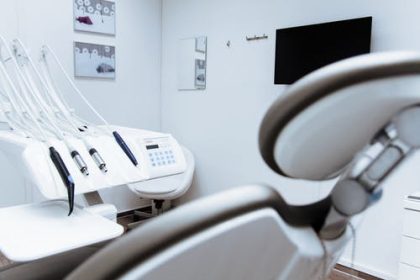Imagine waking up with a throbbing toothache and not being able to tell anyone about it. That’s what our pets go through when they have dental issues. As pet owners, it is our responsibility to ensure that their oral health is a priority. This article will delve into the severe consequences of ignoring your pet’s dental health and provide valuable insights on maintaining good oral hygiene for our furry friends.
Understanding Dental Disease in Pets
Plaque and Tartar Buildup
Just like us humans, our pets can also suffer from plaque and tartar buildup on their teeth. When food particles are left on the teeth, they mix with saliva and bacteria, forming a sticky substance called plaque. Over time, this plaque hardens into tartar, which can lead to a more serious condition called periodontal disease.
Periodontal Disease
Periodontal disease is a common dental affliction in pets, especially in dogs and cats. It starts with inflammation of the gums and can progress to the destruction of tooth-supporting structures, tooth loss, and even bone damage if left untreated. In addition to causing pain and discomfort, periodontal disease can also have a significant impact on your pet’s overall health.
Signs of Dental Problems in Pets
Some common signs of dental problems in pets include bad breath, drooling, difficulty eating, and swollen or bleeding gums. However, our pets are good at hiding pain, so it’s crucial to routinely inspect their mouths to detect any abnormalities and schedule regular dental checkups with a veterinarian.
The Link Between Dental Health and Overall Health
Your pet’s dental health influences its overall well-being. Good oral hygiene can help prevent various complications related to inflammation, immune system response, and heart, liver, and kidney health. In the next sections, we will discuss the severe consequences that result from ignoring your pet’s dental health.
Immune System Complications
When your pet suffers from dental issues, its immune system can go into overdrive, trying to fight off bacterial infections that arise due to plaque buildup. This response can intensify inflammation, potentially causing tissue damage and allowing oral bacteria to enter the bloodstream. Finding a reliable veterinary clinic to address your pet’s dental needs is essential to ensure proper immune system functioning and minimize the risk of complications.
Heart Disease and Dental Health
Poor dental health can also increase the risk of heart disease in pets. Inflammation caused by dental disease can lead to endocarditis, a condition characterized by inflammation of the heart’s inner lining. A study by the World Small Animal Veterinary Association showed that dogs with dental disease have a risk of developing endocarditis six times higher than those with healthy teeth.
Diabetes and Dental Health
For pets with diabetes, maintaining good oral health is vital in managing their blood sugar levels. Dental disease can exacerbate inflammation and make it more challenging to control diabetes. Therefore, it is of utmost importance for pet owners to be vigilant about their diabetic pets’ dental health.
Pain and Suffering
Our pets might not be able to communicate their pain, but living with dental disease can significantly decrease their quality of life. It’s crucial to ensure that they receive proper dental care, including regular dog routine checkup, to identify and address any dental issues promptly.
Broken Jaw and Other Bone Complications
Poor oral hygiene can, in some rare cases, lead to a broken jaw in your pet, especially in smaller breeds. Dental infections can weaken the jaw, making it susceptible to fractures even from minor impacts.
Importance of Regular Dental Care
Ensuring your pet’s oral hygiene through regular dental care can help prevent severe health consequences. Here are some essential aspects of maintaining your pet’s dental health:
Tooth Brushing
Regular tooth brushing is an excellent way to minimize plaque buildup. Start by introducing tooth brushing gradually, using toothpaste specifically formulated for pets and an appropriate toothbrush. Make this a positive experience by offering rewards and praise.
Professional Dental Cleanings and Checkups
Scheduling regular dental cleanings and checkups with your veterinarian is crucial in detecting and addressing any dental issues early on, preventing the development of severe complications. During these appointments, your veterinarian may also recommend dental surgery to address significant dental issues. Surgery can be vital for your pet’s dental health, whether it’s a tooth extraction or any other necessary procedure. To learn more about the benefits and importance of oral surgery, you can check it out with your vet.
Conclusion
In summary, ignoring your pet’s dental health can lead to severe consequences, such as immune system complications, heart disease, and diabetes, among others. Prioritizing your pet’s oral hygiene not only helps prevent these complications but also significantly improves their overall quality of life. Make sure your pet receives regular dental care at home and by a professional to ensure their teeth stay strong and healthy throughout their life. Remember, a healthy pet is a happy pet, and addressing their dental needs is a crucial part of that equation.





